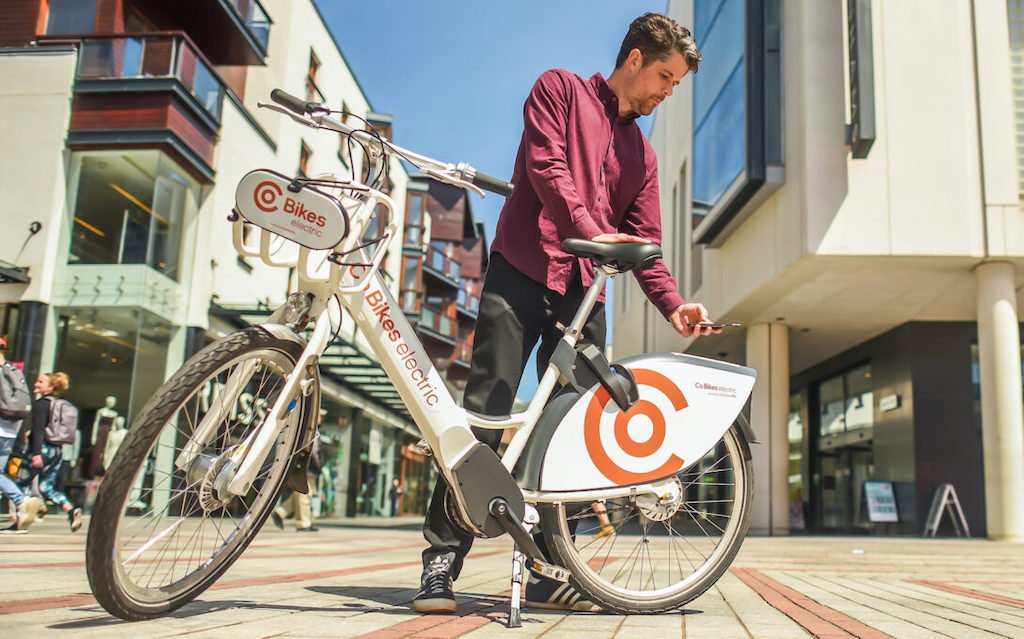Exeter bike sensors provide data to help plan cycling networks
University researchers are using sensor data from Exeter’s e-bike share scheme to better understand cycling patterns in the city and provide real-world data to evaluate future cycling infrastructure proposals.
In the project led by researchers at the University of Plymouth’s Environmental Futures and Big Data Impacts Lab, e-bikes available for hire through Exeter’s on-demand Co Bikes service have been fitted with sensors from See.Sense, according to reports in Cittimagazine.
The initiative, says the partnership, is gathering data insights “that go beyond the type of data that is usually able to be captured on bikes”, including road surface condition, route popularity, swerving and braking, speed, dwell time, as well as bike location and bike usage statistics.
See.Sense’s sensors contain patented AI-sensor technology to monitor the rider’s environment and “paint a vivid picture of cycling in Exeter that was previously unobtainable”.
Route popularity and dwell time is of particular focus, as this enables researchers to understand the routes cyclists are most commonly travelling and how long they are staying at their destination.
In turn, this will allow the Impact Lab to gain an understanding of the provisions needed for e-bike users. For instance, by studying the origin and destination points of journeys, researchers will be able to determine the effectiveness of individual docking stations and plan for the creation of future stations.
Additionally, street map data will be plotted to assess the impact of hills and gradients on route choice – Exeter is famously hilly. Research will also consider the impact of seasonal and weather conditions and assess whether this should be taken into consideration for future planning.
The data and research from the Impact project will be shared with Devon County Council, enabling the council to sense check planned infrastructure proposals and determine if they align with riders’ actual patterns of use. This will also provide an additional layer of data for cycle network planners, aiding the creation of the city’s local cycling and walking infrastructure.
Philip McAleese, CEO of See.Sense, said, “As we move towards a future of sustainable travel, the need for detailed, comprehensive data to plan cycling networks that are connected, safe, and accessible for all is increasingly clear. This project is leading the way in creating safer and more connected cycling.”

